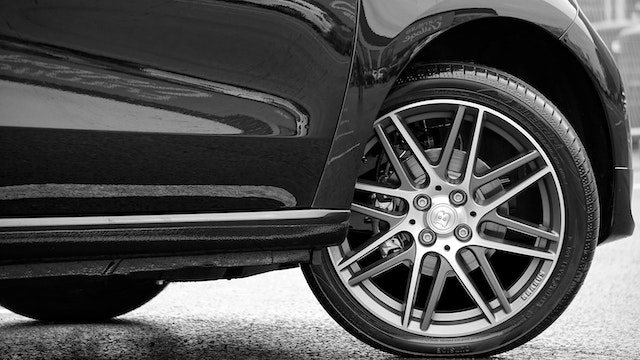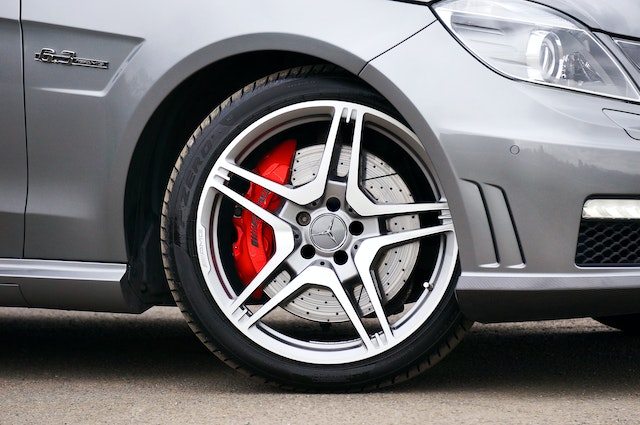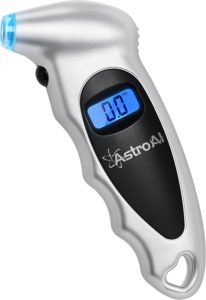Introduction
Tires are a crucial component of any vehicle, providing traction and stability on the road. Maintaining the correct tire pressure is essential to ensure your tires perform optimally and your vehicle is safe to drive. However, high tire pressure can have negative effects on both your tires and vehicle. In this article, we will explore how high tire pressure affects tires and vehicles and what you can do to prevent it.
What is Tire Pressure
Tire pressure refers to the amount of air inside a tire, which affects its performance and safety. The correct tire pressure is specified by the manufacturer and is on the door jamb or in the owner’s manual. It is important to check tire pressure regularly and maintain the recommended level, as high or low tire pressure can have serious consequences.
Effects of High Tire Pressure on Tires
Reduced Traction and Handling: High tire pressure can cause the tires to have reduced traction, especially on wet or slippery roads. This can lead to decreased handling and stability, making it more difficult to control the vehicle.
Shorter Tire Life: High tire pressure can cause the tires to wear out faster, reducing their lifespan. The extra pressure causes the tire to wear out in the center, reducing the contact area and creating more stress on the tire.
Uncomfortable Ride: High tire pressure can result in a harsh and uncomfortable ride, as the tires are less able to absorb road imperfections.
Effects of High Tire Pressure on Vehicles
Decreased Fuel Efficiency: High tire pressure can reduce fuel efficiency, as the tires are less able to absorb road vibrations and shocks. This can lead to increased rolling resistance and decreased fuel economy.
Suspension Damage: High tire pressure can cause the suspension to work harder, resulting in increased stress and wear on the components. Over time, this can lead to suspension damage and the need for costly repairs.
Braking Performance: High tire pressure can also have a negative impact on braking performance, as the tires are less able to grip the road and provide maximum stopping power.
How to Maintain Proper Tire Pressure
Maintaining proper tire pressure is easy and only takes a few minutes. Here are the steps to follow:
Check the Recommended Tire Pressure: The recommended tire pressure for your vehicle can be found on the door jamb or in the owner’s manual.
Use a Tire Pressure Gauge: A tire pressure gauge can be purchased at a local auto parts store. Simply remove the valve cap, attach the gauge to the valve stem, and read the pressure.
Inflate or Deflate Tires as Needed: If the tire pressure is too low, use an air compressor or air pump to add air until it reaches the recommended level. If the tire pressure is too high, release air using the valve stem until it reaches the recommended level.
Repeat the Process for All Tires: Repeat the process for all four tires, including the spare if you have one.
It is also important to check tire pressure when the tires are cold, as the pressure increases as the tires heat up from driving.
FAQs
What is the correct tire pressure for my vehicle?
The correct tire pressure for your vehicle is specified by the manufacturer and can be found on the door jamb or in the owner’s manual.
How often should I check my tire pressure?
It is recommended to check your tire pressure at least once a month and before long road trips.
What happens if I over inflate my tires?
Overinflating your tires can result in reduced traction, handling, and braking performance, as well as increased wear and a harsh ride. It can also lead to suspension damage and decreased fuel efficiency.
Conclusion
High tire pressure can have serious consequences on both your tires and vehicle. By maintaining proper tire pressure, you can improve traction and handling, extend tire life, and prevent damage to the suspension and braking system. Take a few minutes each month to check your tire pressure and ensure that your vehicle is safe and performing optimally.
In conclusion, understanding how high tire pressure affects tires and vehicles is an important aspect of vehicle ownership. By maintaining proper tire pressure, you can keep your vehicle safe and performing at its best. Remember, checking and maintaining tire pressure is a simple and cost-effective way to ensure the longevity and performance of your tires and vehicle.




